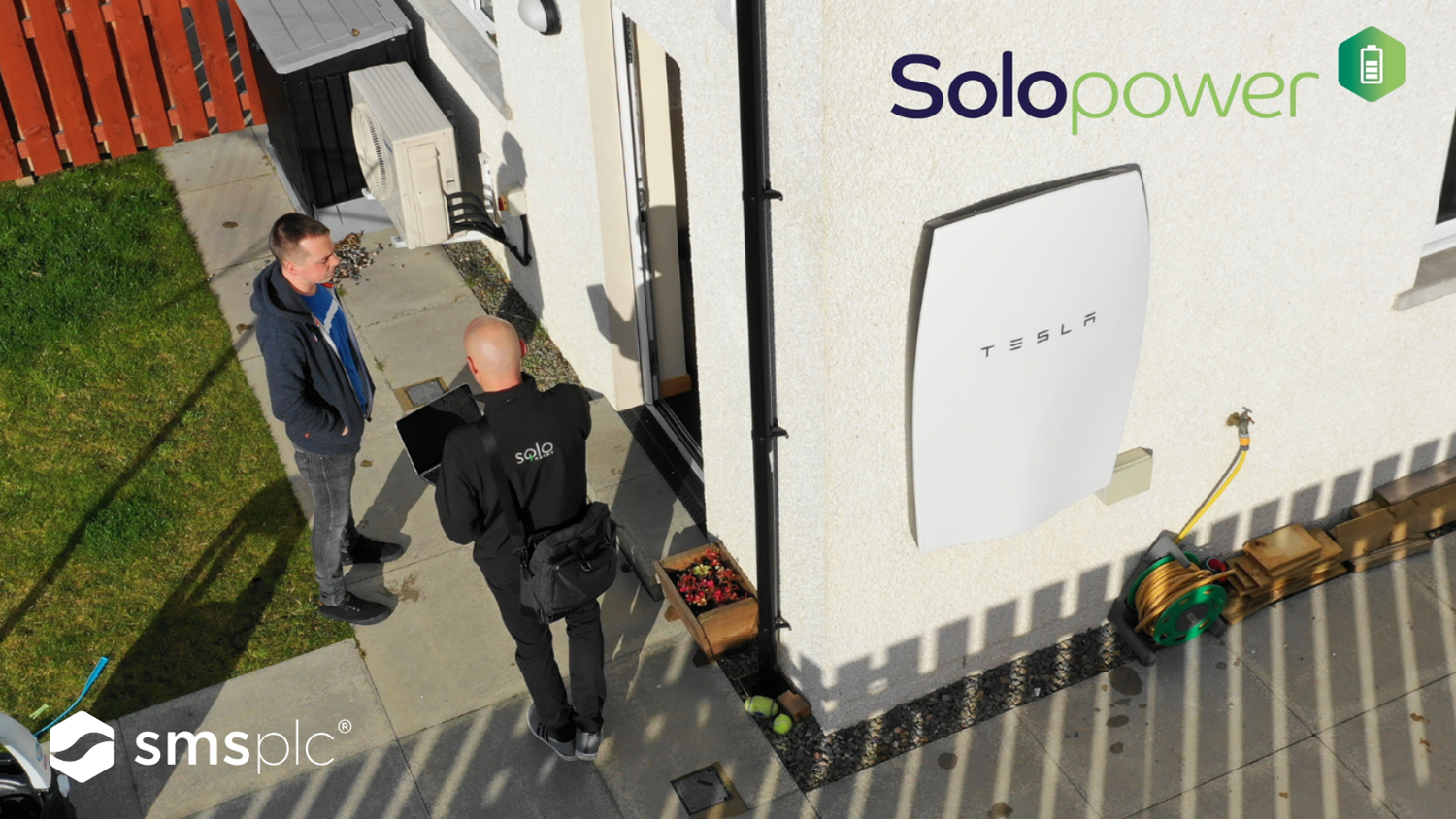How to create low-carbon social housing that can tackle our hidden fuel poverty problem?

By partnering with social housing landlords to deliver a fully-financed and intelligently operated solar PV and battery storage solution, Solopower aims to support decarbonisation efforts in a way that makes clean energy accessible and affordable for tenants.
Addressing the existential threat of climate change is unquestionably the major driver for decarbonisation efforts globally, and is consequently something the whole of society can recognise and rally behind. However, there is another important stimulus for carbon reduction that is seldom talked about in comparison: the growing and relatively hidden issue of fuel poverty.
Although fuel poverty has different definitions depending on where you live in the UK, it can broadly be described as any household that cannot afford to pay its energy bills. And though it affects a minority of people in Britain, a quick glance at the stats provides cause for alarm.
Whilst in England and Wales, a not insignificant 1 in 10 households are today living in fuel poverty, in Scotland this rises to 1 in 4, and in Northern Ireland, a staggering 42%. These figures are expected to have worsened this winter, with rises in unemployment and home energy consumption due to pandemic lockdown restrictions.
It’s within this context that – since the UK Government’s announcement in 2019 to target net-zero carbon emissions by 2050 – tackling fuel poverty has taken on a renewed focus, forming an important subset of overall net zero plans and discussions.
Sustainability vs Affordability
As outlined by the World Energy Council, energy affordability and carbon reduction are intrinsically linked, making up two elements of what is described as the global Energy Trilemma.
On one hand, decarbonisation will ultimately contribute to lower energy costs in the long term through establishing a smarter, more efficient, sustainable energy system that works better for everyone. On the other hand, as we are currently seeing in the energy market, the huge investments required to transition to a decarbonised system is having a reverse effect and pushing up the end price for many consumers.
Therein lies the rub when it comes to enhancing the sustainability of our energy system in a way that does not exacerbate the issue of affordability – and fuel poverty – in the process. Approached resourcefully, however, and the drive for net zero carbon emissions provides government, the energy industry and local housing authorities a win-win opportunity to address climate change and fuel poverty simultaneously.
Technology (and finance) is key
With our mission to deliver the future of smart energy, at SMS we aim to aid local government and housing associations – the public bodies charged with delivering the UK’s Fuel Poverty Strategy – with this joint challenge.
According to the Committee on Fuel Poverty report, such a strategy needs to shift from improving energy efficiency levels at the lowest cost, to one that also focuses on ‘future-proofing properties so that they can easily be adapted to become the low-carbon homes of the future’.
Through our technology-led and fully-financed green energy solution, Solopower, we have already begun to make this concept a reality in partnership with local authorities in Scotland on three social housing projects, where we are engaged to operate batteries across 700 houses as a Virtual Power Plant, or VPP.
This is achieved through our innovative, cloud-based FlexiGrid™ aggregation platform, which we use to centrally control distributed, solar PV and battery storage assets installed at each individual property. The goal of this is to create efficient, decentralised smart energy systems which better integrate and balance renewable generation, ultimately helping contribute to the local housing authority’s net-zero targets and significantly lower the costs for both landlord and tenant.

Solopower: the smart solar + battery storage solution for social landlords
Whilst the concept of how we achieve decarbonisation here is fairly simple to comprehend, it’s necessary to touch on how significant cost savings can also be realised through Solopower.
Firstly, we are able to work with local housing authorities to design and install a Solar + Storage scheme for new and existing housing stock, and – supported by our asset funding capability – finance the complete project, ensuring there’s no up-front cost to the landlord or tenants.
Once installed, we control batteries remotely via FlexiGrid™ to remove the dilemma of tenant behaviour change and therefore maximise self-consumption of onsite solar generation. This energy is supplied to the tenant at a lower cost (typically 20-30% lower) than grid-supplied energy through a solar PPA agreement via the landlord, delivering immediate savings.
FlexiGrid™ can also control the battery to charge from the grid during off-peak ‘smart tariff’ periods, thereby delivering further savings to the tenant. Finally, batteries are also operated by FlexiGrid™ to deliver balancing services to the National Grid, which support increasing levels of renewable generation and decarbonisation across the entire UK network. The combination of solar PPA payments and grid trading allows us to recover our investment while delivering up to 25% electricity bill savings (c.£200 pa compared to standard tariffs) to the resident, and up to 90% decarbonisation of electricity supply per home across the housing stock.
Solopower is a solution that could be implemented across the UK’s local council and housing association jurisdictions, holding huge potential not only to reduce carbon footprint across the housing stock and meet net-zero targets, but also importantly help landlords alleviate fuel poverty through reducing tenant bills and improving EPC ratings.
This is something we care deeply about at SMS. After all, the creation of a more sustainable energy system is something we feel should be accessible and affordable for all in society.


